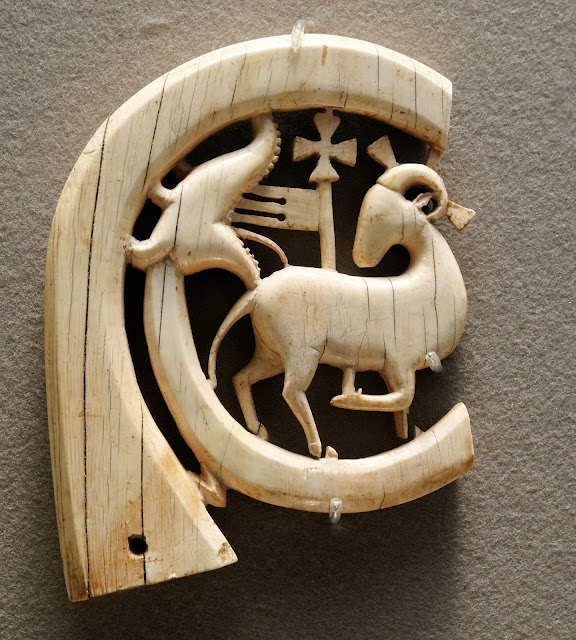In this coming Sunday’s Gospel reading, Jesus is referred to twice by his cousin John as the “Lamb of God.” The first time John adds the qualifier, “who takes away the sin of the world.” You might recognize the words from the “Agnus Dei,” which we sing or say at certain times during the year:
Lamb of God who takest away the sin of the world,
have mercy on us.
Lamb of God who takest away the sin of the world,
have mercy on us.
Sin is an injury or rupture in relationship, which creates an imbalance requiring atonement. “Atonement” is an interesting word—and very much misunderstood. Atonement is too often seen as a bargain that lets someone avoid the consequences of their actions.
Just the opposite.
Atonement is an action or attitude that seeks to provide reparation for an injury or wrong that has been committed. Atonement means making amends, and being willing to sacrifice in order to restore a sense of wholeness. Atonement allows for reconciliation when one person owes another for a wrong or injury they have done.
Consider the word with hyphens within it: “at- one-ment.” The suffix, “-ment”, is defined as “condition” or “the means of making or being.” So, the literal meaning of “at-one-ment” is “the condition of unity,” or “the condition of being ‘as one.’”
Injury or wrong creates separation. When someone has hurt us, that hurt creates a divide or a gulf between us and the other person. That gulf might remain indefinitely, unless the hurt or injury of the offended party is alleviated or tended to in some way. This can be something as simple as expressing remorse and apologizing, or it can include attempts to restore what was damaged: if kids vandalize playground equipment by spray-painting graffiti on it, their atonement for their wrong can include paint removal, repainting the equipment themselves, or paying for said repairs. But atonement goes deeper. It means we are at one with each other—the offender and the offended—and thus we would never think of repeating the offense, for it would be the same as hurting ourselves.
The goal of atonement is to try as much as possible to return to the condition between the guilty party and the injured party as it was before the act that was wrong. The goal of atonement, in other words, is not about blood sacrifice and substituting an innocent victim for a guilty one. The goal of atonement is reconciliation and repair. It is about choosing to avoid harming another in the first place, in imitation of Jesus as Jesus exemplified during his earthly life and ministry.
Jesus will take away the sin of the world, and people may understand it in two helpful ways. First, Jesus is the incarnation of God in humanity, both fully God and fully man, living among us and teaching us. Second, Jesus’ teaching is revelatory—he reveals God to us in a new way as the Son of God, and as we say each Sunday in the Nicene Creed, as “very God.” He helps us to understand how God wants us to live our lives—by modelling it himself. Atonement leads to nothing less than mercy, justice, peace.
Lamb of God who takest away the sin of the world,
Have mercy upon us.
No matter in what way you understand these phrases, we Christians see Jesus as the means for us to truly know God and to know how to live our lives, even though a hundred different Christians might interpret that second part a hundred different ways.
Lamb of God who takest away the sin of the world,
Grant us thy peace.
This was first published at Episcopal Journal and cafe's Speaking to the Soul on January 12, 2023.
Image: part of a crozier with the Lamb of God from the Louvre.

No comments:
Post a Comment